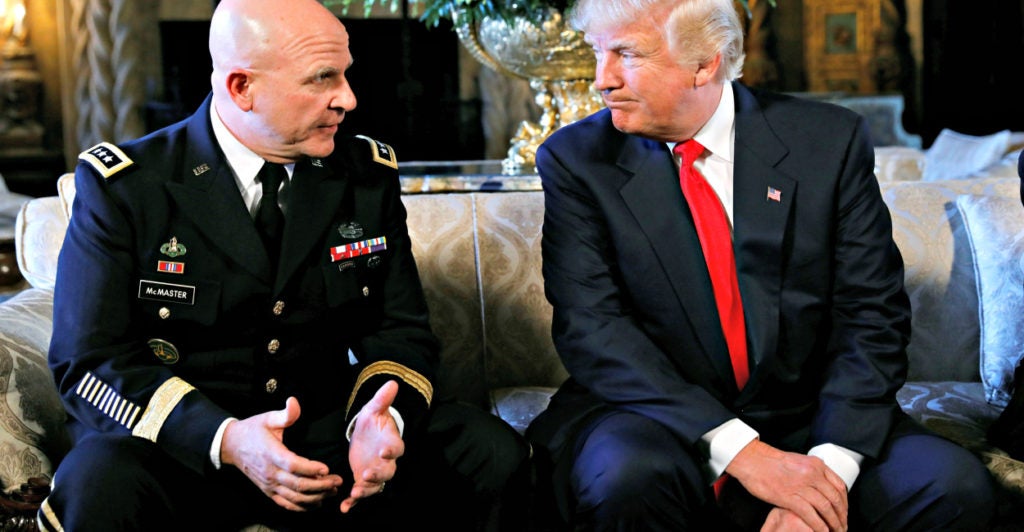Army Lt. Gen. H.R. McMaster is a perfect fit for the position of national security adviser, and it is no surprise that his selection by President Donald Trump has delighted many in the defense and national security community.
Trump announced Monday night that McMaster will replace Michael Flynn, the retired Army general who resigned a week ago after he admitted misleading the vice president about the content of a December phone call with the Russian ambassador.
McMaster is a scholar-warrior, much like two fellow flag officers serving in Trump’s Cabinet—retired Marine generals James Mattis and John Kelly.
McMaster is a brilliant strategist who has devoted his Army career to understanding military history and helping America’s armed forces learn from the mistakes of the past in order to fight more effectively in the future. One of us, Thomas Spoehr, can say this with confidence, having known him for many years.
Notably, McMaster wrote a 1997 book, “Dereliction of Duty,” which criticized top military leaders during the Vietnam War for failing to give their candid advice to the president and secretary of defense. As national security adviser, one of McMaster’s key roles will be to provide unvarnished advice to the president.
More recently, as commander of the 3rd Armored Cavalry Regiment during the Iraq War, McMaster led U.S. forces in beating back an insurgency that was running rampant in the western Iraqi city of Tal Afar, where al-Qaeda had taken control.
In an interview with National Geographic, he described the situation his troops, and the Iraqi people, faced in Tal Afar:
All the schools were closed because of violence, all the marketplaces were closed. There was no power. There was no water. The city was lifeless. People lived in abject fear.
What McMaster did next changed the course not only of one city, but the entire U.S. military strategy in Iraq. He invested in working directly with the Iraqi people and building trust in the U.S. military’s capability to eliminate terrorists threatening their livelihoods. He moved his troops off large bases and brought them in contact with local residents.
In so doing, McMaster contributed to laying the groundwork for a new counterinsurgency strategy implemented by Army Gen. David Petraeus that ultimately would lead to the neutralization of al-Qaeda in Iraq and increased stability throughout the nation.
This strategy was not popular at the time, yet McMaster recognized its potential and was unwavering in his drive to try a new approach. Remaining willing to re-examine strategies and plans is a key attribute for the national security adviser.
McMaster is also just as much a warrior as he is a scholar and brilliant intellectual. He served in the first Persian Gulf War, receiving a Silver Star for his leadership and bravery in the 1991 Battle of 73 Easting, the largest tank-on-tank battle since World War II.
In this 23-minute battle, McMaster’s company destroyed 28 Iraqi tanks, 16 personnel transports, and more than 30 trucks.
These accomplishments speak volumes about McMaster’s professionalism, leadership, and passion for defending America. He is an extraordinary choice to be national security adviser, and Trump was wise to select him.
Going forward, Americans can rest assured knowing that H.R. McMaster will be the man providing national security advice and options to the leader of the free world.
